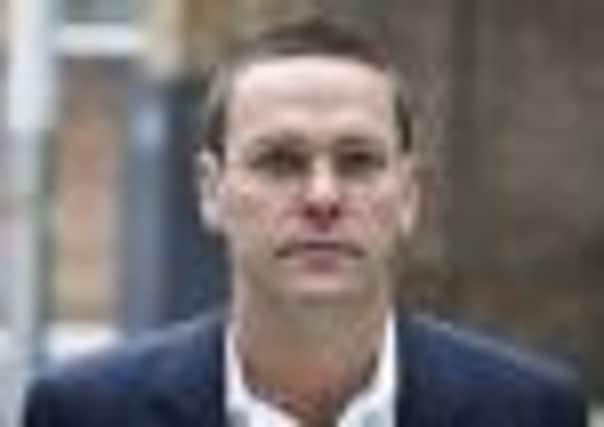James Murdoch hangs on at BSkyB but rebels give him black eye


A total of over 81 per cent of votes cast yesterday were in favour of Murdoch being re‑elected. Excluding the vote by News Corp, which owns 39 per cent, nearly 45 per cent of the other shareholders failed to back Murdoch.
Despite surviving the rebellion, the scale of the opposition to Murdoch remaining in post was seen as a black eye for both him and the BSkyB board.
Advertisement
Hide AdAdvertisement
Hide AdIn a further damaging investor blow to the satellite broadcaster, over 16 per cent of shareholders voted against the group’s remuneration report.
Guy Jubb, head of corporate governance at SLI, a longstanding investor in the satellite broadcaster, told the London AGM that the institution had misgivings about Murdoch’s perceived lack of independence. He is also deputy chief operating officer at News Corp, run by his father Rupert Murdoch. News Corp owns 39 per cent of BSkyB and earlier this year made an unsuccessful bid for the company.
Jubb said that in September SLI had written to Nicholas Ferguson, Sky’s deputy chairman and senior independent director, to express concerns.
“We explained to Ferguson that the unsuccessful bid approach from News Corporation had magnified the conflicts which the independent non‑executive directors have to deal with and, therefore, that it is inappropriate that the group’s board (or indeed the board of any company) is led by a representative of its largest shareholder and putative offeror,” Jubb said.
He also referred to investor concerns about the phone hacking scandal at the News of the World, as the younger Murdoch is chairman of News International, the News Corp subsidiary that runs the British newspaper arm that also includes the Times and the Sun.
“We pointed out that our misgivings had been heightened by the revelations of stewardship shortcomings at the News of the World, a title for which Mr [James] Murdoch bore a measure of responsibility,” Jubb added.
He said that, “sadly”, the unanimous view of Sky’s independent directors had been to back Murdoch remaining as group chairman.
However, in voting SLI’s six million shares, about 0.5 per cent, against Murdoch’s re‑election, Jubb said he hoped the independent directors would “reflect carefully on not only the level of dissent amongst independent shareholders but also the tone of the comments that accompany their votes”.